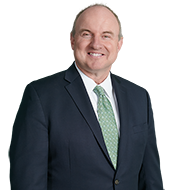COVID-19: Massachusetts Closes Non-Essential Businesses and Further Limits Gatherings
On March 23, 2020, Massachusetts Governor Charles D. Baker issued an emergency executive order (the “Executive Order”) requiring all businesses and organizations in Massachusetts that do not provide “COVID-19 Essential Services” to close their physical workplaces and facilities to workers, customers, and the public beginning Tuesday, March 24th, at noon until Tuesday, April 7th, at noon.
Exhibit A to the Executive Order lists designated businesses and other organizations that provide essential services and workforces related to COVID-19 and can continue to operate during this two-week time period. The list is modeled after the 14 critical infrastructure sectors the Federal Cybersecurity and Infrastructure Security Agency identified in its Guidance on the Essential Critical Infrastructure Workforce (issued on March 19, 2020, and updated on March 23, 2020) (the “CISA Guidance”). The list also includes additional services and functions Governor Baker deemed essential to promote the public health and welfare of the Commonwealth. Both Governor Baker’s and the CISA’s lists are subject to change given the rapidly changing circumstances.
Examples of essential businesses and workforces under the Executive Order include:
- “Medical professionals and caregivers”;
- “Workers supporting groceries, pharmacies and other retail … that sells food and beverage products”;
- “Food manufacturer employees and their supplier employees”;
- “Retail fuel centers such as gas stations and truck stops”;
- “Commercial retail stores that supply essential sectors, including convenience stores, pet supply stores, auto supplies and repair, hardware and home improvement, and home appliance retailers”; and
- “Workers who are needed to provide consumer access to banking and lending services.”
Businesses not on the list are encouraged to continue operations remotely in a way that does not require workers, customers, or the public to enter or appear at the brick-and-mortar premises closed by the Executive Order.
The Executive Order also limits gatherings to 10 people during the state of emergency, a reduction from the 25-person limit established in an earlier order from Governor Baker. Pursuant to the Executive Order, the Massachusetts Department of Public Health (“DPH”) issued a revised assemblage guidance that reflects the new gathering restrictions and sets forth social distancing protocols for workers. Businesses designated as essential are urged to follow the social distancing protocols for workers set forth in this guidance. Restaurants, bars, and other establishments that sell food and beverage products to the public are encouraged to continue to offer food for take-out and by delivery, but such establishments must follow the social distancing protocols set forth in the DPH assemblage guidance.
Residents are advised to stay home and avoid unnecessary travel and other unnecessary activities during this two-week time period. More importantly, residents over 70 years of age or with underlying health conditions, who are considered at high risk when exposed to COVID-19, are advised to limit social interactions with other people as much as possible.
The entire list of essential businesses and workforces that can continue to operate in Massachusetts can be found here, and the CISA Guidance can be found here. The revised DPH assemblage guidance can be found here.
K&L Gates is advising clients on the parameters of the Executive Order and continuing to monitor COVID-19 developments.
This publication/newsletter is for informational purposes and does not contain or convey legal advice. The information herein should not be used or relied upon in regard to any particular facts or circumstances without first consulting a lawyer. Any views expressed herein are those of the author(s) and not necessarily those of the law firm's clients.






